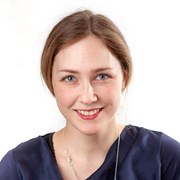We humans live in a symbiotic relationship with bacteria. They need us and we need them. We find bacteria everywhere. Most of them are in our digestive tracts, but we also find large numbers on our skin and membranes, and in our saliva. Ideally, bacteria should stay where they belong and this is why we wash our hands after going to the toilet.
“While our gut bacteria remain essentially unchanged, they will mutate if they get into other parts of the body”, says Haslene-Hox. “Our hands come into contact with all sorts of things, and host a tremendous diversity of bacteria.
“Our gut bacteria digest substances in our food that we are otherwise unable to break down. While they provide the body with useful signals, other bacteria are less than welcome”, says Haslene-Hox. “For example, if you don’t brush your teeth properly, caries bacteria may get the upper hand and lead to decay and cavities”, she says.
But we can also have too much of a good thing. Overuse of soaps and anti-bacterial and disinfection products can remove so many of the beneficial bacteria from our skin that this gives the harmful ones an opportunity to cause infection.
All of us have our own individual bacterial flora, and the first years of our lives are crucial. Licking the floor and playing with the family’s pet dog may actually be of benefit to toddler Johnny in later life.
If you want to learn more about these fascinating bacteria, researcher Hanne Haslene-Hox talks more about them in this episode of our podcast “Smart Forklart”. You can also find the episode on the platforms you normally use for podcast listening.



